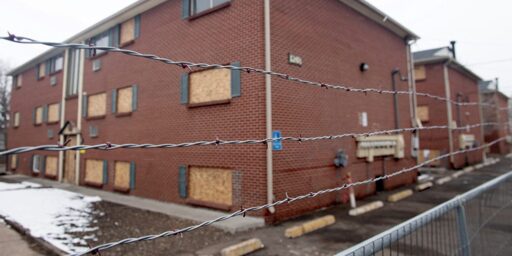“How do your people in the field determine that someone is a gang member?” Jonathan Karl, a co-anchor of ABC’s “This Week,” asked.
“Look, there’s various methods,” Homan responded. “I’ve noticed in the media people saying, ‘They don’t have criminal histories.’ Well, a lot of gang members don’t have criminal histories, just like a lot of terrorists in this world — they’re not in any terrorist database, right?”
It was a rare moment of transparency for Homan, a former acting director of the U.S. Immigration and Customs Enforcement, best known to most Americans for his time as a tough-talking political commentator on Fox News.
His analogy — likening suspected Venezuelan gang members to Al Qaeda or Islamic State fighters — was telling. Both, he implied, operate in ways that make proving connections nearly impossible, allowing the government to label anyone a threat.
For two decades after the September 11 attacks, the federal government inflated the threat of Islamist extremism in the U.S. by running undercover sting operations. The arrests were made to much fanfare, but actually locked up people who posed little or no threat to the country. Instead of bolstering public safety, what these operations did was bolster expanded post-September 11 law enforcement powers and bloated counterterrorism budgets.


